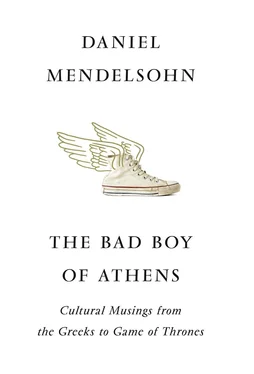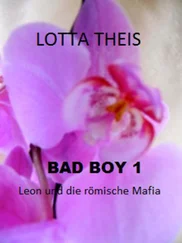1 ...6 7 8 10 11 12 ...20 This communal voice, which to us seems jarring in lyrics of deep, even erotic feeling – imagine that Shakespeare’s sonnets had been written as choral hymns – is one that some translators today simply ignore, in keeping with the modern interest in individual psychology. But if the proper translation of the sexy little Fragment 38 is not ‘you scorch me’ but ‘you scorch us’, which is what the Greek actually says, how, exactly, should we interpret it?
To answer that question, classicists lately have been imagining the purposes to which public performance of erotic poems might have been put. Ancient references to the poet’s ‘companions’ and ‘students’ have led one expert to argue that Sappho was the leader of a female collective, whose role was ‘instruction leading to marriage’. Rather than expressions of individual yearning for a young woman, the poems were, in Lardinois’s view, ‘public forms of praise of the general attractiveness of the girl’, celebrating her readiness for wedlock and integration into the larger society. The late Harvard classicist Charles Segal made even larger claims. As he saw it, the strongly rhythmic erotic lyrics were ‘incantatory’ in nature; he believed that public performance of poems like Fragment 31 would have served to socialize desire itself for the entire city – to lift sexual yearning ‘out of the realm of the formless and terrible, bring it into the light of form, make it visible to the individual poet and, by extension, to his or her society’.
Even purely literary issues – for instance, the tendency to think of Sappho as the inventor of ‘the lyric I’, a single, emotionally naked speaker who becomes a stand-in for the reader – are affected by these new theories. After all, if the ‘I’ who speaks in Sappho’s work is a persona (a ‘poetic construct rather than a real-life figure’, as Lardinois put it) how much does her biography actually matter?
Between the paucity of actual poems and the woeful unreliability of the biographical tradition, these debates are unlikely to be resolved anytime soon. Indeed, the study of Sappho is beset by a curious circularity. For the better part of a millennium – between the compilation of the Suda and the late nineteenth century – the same bits of poetry and the same biographical gossip were endlessly recycled, the poetic fragments providing the sources for biographies that were then used as the basis for new interpretations of those same fragments. This is why the ‘new Sappho’ has been so galvanizing for classicists: every now and then, the circle expands, letting in a little more light.
Obbink’s revelation last year was, in fact, only the latest in a series of papyrological discoveries that have dramatically enhanced our understanding of Sappho and her work. Until the late nineteenth century, when the papyri started turning up, there were only the ancient quotations. Since then, the amount of Sappho that we have has more than doubled.
In 1897, two young Oxford archaeologists started excavating a site in Egypt that had been the municipal dump of a town called Oxyrhynchus – ‘the City of the Sharp-Nosed Fish’. In ancient times, the place had been home to a large Greek-speaking population. However lowly its original purpose, the dump soon yielded treasures. Papyrus manuscripts dating to the first few centuries AD, containing both Greek and Roman texts, began to surface. Some were fragments of works long known, such as the Iliad , but even these were of great value, since the Oxyrhynchus papyri were often far older than what had been, until that point, the oldest surviving copies. Others revealed works previously unknown. Among the latter were several exciting new fragments of Sappho, some substantial. From the tattered papyri, the voice came through as distinctive as ever:
Some men say cavalry, some men say infantry,
some men say the navy’s the loveliest thing
on this black earth, but I say it’s what-
ever you love
Over the decades that followed, more of the papyri were deciphered and published. But by 1955, when the Cambridge classicist Denys Page published Sappho and Alcaeus , a definitive study of the two poets from Lesbos, it seemed that even this rich new vein had been exhausted. ‘There is not at present,’ Page declared, ‘any reason to expect that we shall ever possess much more of the poetry of Sappho and Alcaeus than we do today, and this seems a suitable time to begin the difficult and doubtful task of interpreting.’
Sappho herself, it seems fair to say, would have raised an eyebrow at Page’s confidence in his judgment. Human fortune, she writes, is as variable as the weather at sea, where ‘fair winds swiftly follow harsh gales’. And, indeed, this verse was unknown to Page, since it comes from the papyrus fragment that Dirk Obbink brought to light last year: the ‘Brothers Poem’.
For specialists, the most exciting feature of the ‘Brothers Poem’ is that it seems to corroborate the closest thing we have to a contemporary reference to Sappho’s personal life: an oblique mention of her in Herodotus’ Histories , written about a century and a half after her death. During a long discussion of Egyptian society, Herodotus mentions one of Sappho’s brothers, a rather dashing character named Charaxus. A swashbuckling merchant sailor, he supposedly spent a fortune to buy the freedom of a favourite courtesan in Egypt – an act, Herodotus reports, for which Sappho ‘severely chided’ her sibling in verse. Ovid and other later classical authors also refer to some kind of tension between Sappho and this brother, but, in the absence of a surviving poem on the subject by Sappho herself, generations of scholars were unable to verify even the brother’s name.
So it’s easy to imagine Dirk Obbink’s excitement as he worked his way through the first lines of the poem:
but you’re always nattering on that Charaxus must come,
his ship full-laden. That much, I reckon, Zeus knows …
The pious thing to do, the speaker says, is to pray to the gods for this brother’s return, since human happiness depends on divine good will. The poem closes with the hope that another, younger brother will grow up honourably and save his family from heartache – presumably, the anxiety caused by their wayward elder sibling. At last, that particular biographical titbit could be confirmed.
For non-classicists, the ‘Brothers Poem’ may be less enthralling than the other recent Sappho find, the poem that surfaced in 2004, about old age – a bittersweet work indeed. After the University of Cologne acquired some papyri, scholars found that one of the texts overlapped with a poem already known: Fragment 58, one of the Oxyrhynchus papyri. The Oxyrhynchus fragment consisted mostly of the ends of a handful of lines; the new Cologne papyrus filled in the blanks, leaving only a few words missing. Finally, the lines made sense.
As with much Archaic Greek poetry, the newly restored Fragment 58 – the ‘Old Age Poem’, as it is now called – illustrates its theme with an example from myth. Sappho alludes to the story of Eos, the dawn goddess, who wished for, and was granted, eternal life for her mortal lover, Tithonus, but forgot to ask for eternal youth:
[I bring] the beautiful gifts of the violet Muses, girls,
and [I love] that song lover, the sweet-toned lyre.
My skin was [delicate] before, but now old age
[claims it]; my hair turned from black [to white].
My spirit has grown heavy; knees buckle
that once could dance light as fawns.
I often groan, but what can I do?
Impossible for humans not to age.
For they say that rosy-armed Dawn in love
went to the ends of the earth holding Tithonos,
beautiful and young, but in time grey old age
Читать дальше












